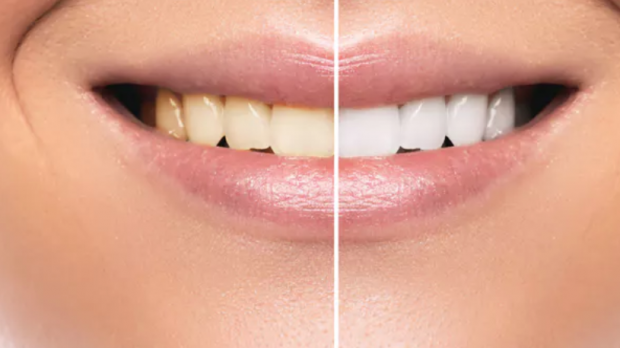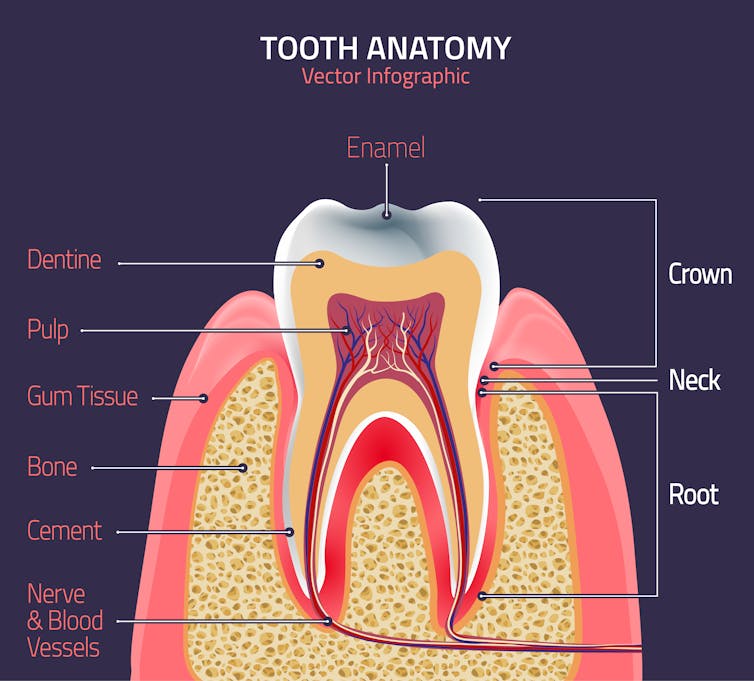
Tooth whitening – don’t gamble with your teeth
Share

People seem to be hypnotised by the lure of having teeth that are whiter than an Oscars ceremony. Studies show that over half of us are dissatisfied with the colour of our teeth. The seemingly insatiable desire for whiter teeth is welcome news for makers of tooth whitening products, judging by the huge array of over-the-counter kits on offer. They will certainly be cheaper than going to the dentist – at least in the short term. But they could end up being expensive in the long term, especially if they result in damage to the surface of the teeth and expensive dental procedures are needed to fix the problem.
Genetics and diet play a large role in why some people’s teeth differ in colour. A lifetime of smoking and consuming strongly coloured foods and drinks, such as curries, tea and coffee, contributes to the effect. If you can resist these foods and drinks, and give up smoking, the effects are not just cosmetic but could also improve the health of your teeth and gums.
If you wish to pursue the option of tooth whitening, you should visit your dentist.
Hydrogen peroxide is regarded by the EU Council Directive 2011/84/EU as the most effective and safest way (although alternatives do exist) to whiten teeth, which is why dentists use it. But in the wrong hands and in the wrong concentration, these harsh chemicals can irritate the tender tissues inside the mouth, as well as the gums.
Before 2012, when the European Directive came into force, the market was poorly regulated, as the amount of hydrogen peroxide used in products sold over the counter varied widely across Europe, as was the amount that could be used by dentists in their surgeries. After an extensive review of the safety and effectiveness of hydrogen peroxide by an expert scientific panel, the EU restricted the amount sold over the counter to 0.1% and up to 6% by dental professionals.
DIY - destroy it yourself?
Home bleaching products are marketed as quick and easy to apply and cheaper than having your teeth whitened by a dentist. But there are two major problems. One, there’s no guarantee that the legal ones work. And, two, the illegal ones put the consumer at risk of damaging their teeth.
The strict laws governing the amount of hydrogen peroxide that can be used in over-the-counter products means that manufacturers look to other chemicals to whiten teeth. Some of these chemicals are questionable as there is a lack of research into their use for this procedure and they may damage teeth, according to a recent study published in the British Dental Journal.
The study looked at the safety of five commonly available over-the-counter products. Three used sodium chlorite as the active ingredient, which breaks down to chlorine dioxide in the acidic environment of the mouth. The whitening effect of sodium chlorite is not fully understood.
Four of the products contained citric acid as the “accelerator”, which will soften and dissolve the enamel. This may lead to a large whitening effect, but over time the enamel will be lost. Once enamel is gone, it cannot be replaced. A serious side effect is yellowing teeth as the underlying dentine, which is naturally yellow, comes to the surface.

As this was a laboratory study, we don’t know what effects these products have on the gums. It is known that bleaching products can cause sensitivity and irritation to the gums and teeth. In a dental practice, these symptoms are closely monitored by the dentist who will advise the person if it is safe to continue. Or they will stop the process until the person’s mouth returns to health.
Safe, cheap and effective: pick two
Over-the-counter whitening products are self-administered and so are open to misuse. The product may not be applied correctly, and it seems almost inevitable that some people will apply more, hoping to increase the whitening effect.
While the EU strictly governs the use of hydrogen peroxide, regulation in other countries is more relaxed. In the US, these products are classified as cosmetic – not medical. It is possible to buy products with either high concentrations of hydrogen peroxide (up to 25%) or other unregulated ingredients.
There are documented cases of damage occurring to teeth, gums and the mouth from their use, but as they are regulated as cosmetic products, manufacturers don’t have to submit reports of injury or other problems to the US Food and Drug Administration. Thanks to the internet, it’s possible to buy products with higher concentrations from anywhere in the world.
Given that you only have one set of adult teeth in your lifetime, there are easy steps you can take to protect your oral health that will also help with whitening. Avoid tooth decay by cutting down on sugar and make sure you brush your teeth twice daily with fluoride toothpaste, including last thing at night. And you can always ask your dentist for advice if you are worried about the appearance of your teeth.![]()
Damien Walmsley, Professor of Restorative Dentistry, University of Birmingham
This article is republished from The Conversation under a Creative Commons license. Read the original article.
